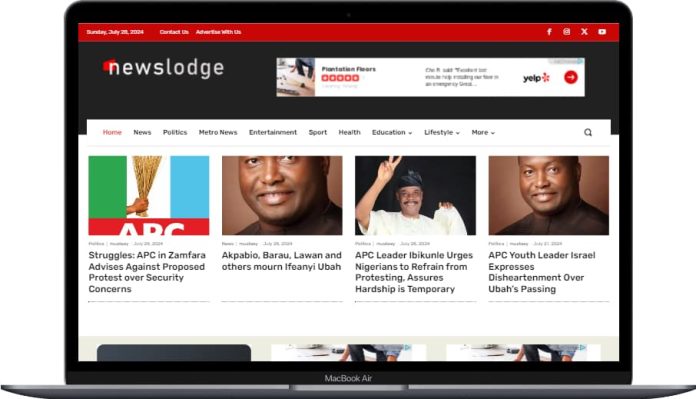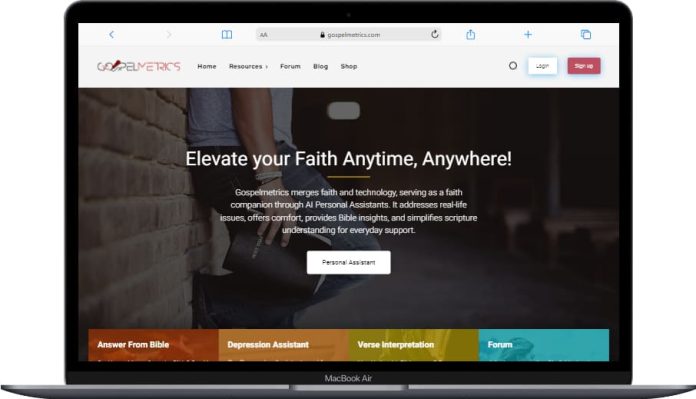[ad_1]
As Facebook Getting ready to launch a "News Tab" this month featuring human-led stories to complement the headlines that appear in your social feed resulting from your friends' posts, paid promotions and algorithms, a new report paints a misleading picture of how social media is seen as today's news platform.
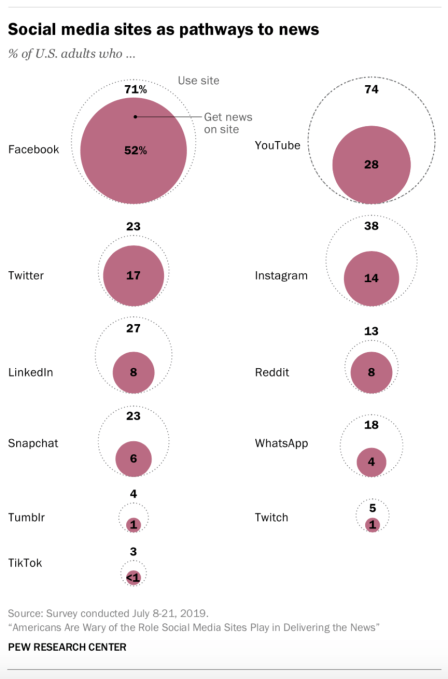
Pio social media news consumption
A Pew Research Center poll found that more than half of the US adults surveyed last July – about 52% – already get their news from Facebook, making it the most popular social media platform for news sources, through YouTube and Twitter, the second and third Most popular at 28% and 17%, respectively, and a variety of other platforms like Instagram, LinkedIn, Reddit and Snapchat also have a smaller but noticeable appearance.
Altogether, 88% of respondents believed that social media has "at least some control" over the news people see.
But feelings about this control are weak.
The majority of respondents – 62% – believe that social media has "significant control" over the mix of news that we see on its programs, while 55% say they believe this will lead to a worse mix of news. 53% identified all news unilaterally and 51% inaccurate news as "very big problems" on social media.
The results are worrying: it confirms the great amount of power that Facebook likes when it comes to consuming news, but it also confirms how people seem to have really decided that the effect was that bad.
The results also come in the wake of troubling stories about the extent to which these platforms have been manipulated by bad actors. Stories of how political groups and state actors hiding their identities promote misleading stories on social programs spanning years back at this point, but even when platforms work to try and locate and calculate these accounts, another less concealed misuse continues to arise.
Just last month, it turned out that those who promote stories through paid channels (advertising, i.e.) can rewrite news headlines to suit their own political agendas, with the news tone being shifted for the vast majority of people who never click on stories and only read summary titles While scrolling to see the latest pictures of their friends' children.
It is not just bad news for consumers. Publishers have long regretted that they are not getting any kind of revenue generated by social platforms from sharing their stories and converting them to traffic monetization, and there has been some thinking that this will change soon due to increased regulation checking. However, a report in this week's WSJ indicates that this may not change any time soon. Facebook claims to only pay a small handful of publishers whose content will be shared in the human-curated news tab.
Upon looking at some of the most interesting details, Pio found that Republicans are more ridiculous of the impact of social media on the news than Democrats, with 75% of them believing that social media has too much control, compared to 53% of them left. Ironically, these numbers seem to contradict the assumption that social media is the echo chamber of your own opinions.
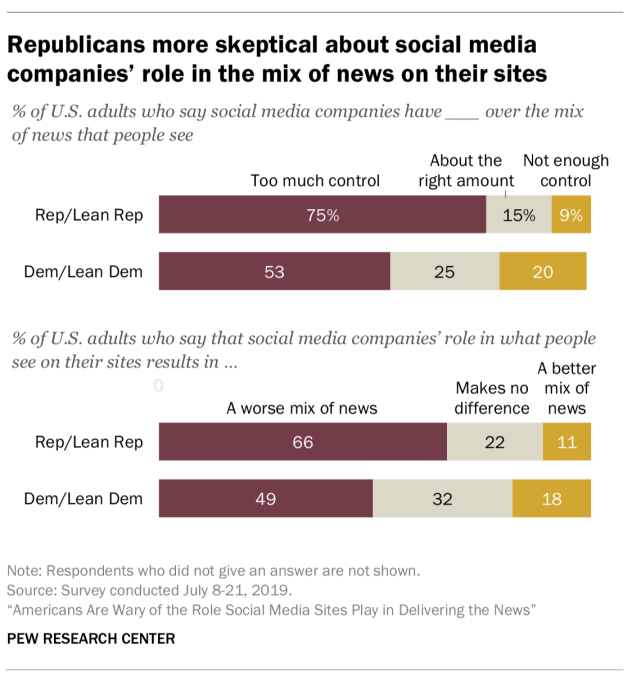
Pew also notes that 48% of news consumers on social media – remember that more Republicans than Democrats think social media has excess control – think news that they see as "too liberal or liberal". This compares to 14% of the insured news as either conservative or very conservative. This would support the feeling among many on the right that the media is too liberal, but that news is also fed that is not in line with their own political inclinations.
The survey also pushes to the last report on how only a handful of publishers pushed through Facebook: 82% of respondents feel that not all news sources are treated equally by social media now – which means some get more trading than Others. About 88% think that who posts "grabbing attention" articles, known as "tasting clicks", are more likely to appear in the feed. 84% believe that social media follow-up plays an important role, and 79% believe the political tendency of the story affects how it appears in your feeds.
Regarding the separation of male and female readers, the report's findings are not surprising and follow many of the same lines we have seen in other polls on social media: Reddit likes are strongly inclined to male readers, while Facebook tends to be female.
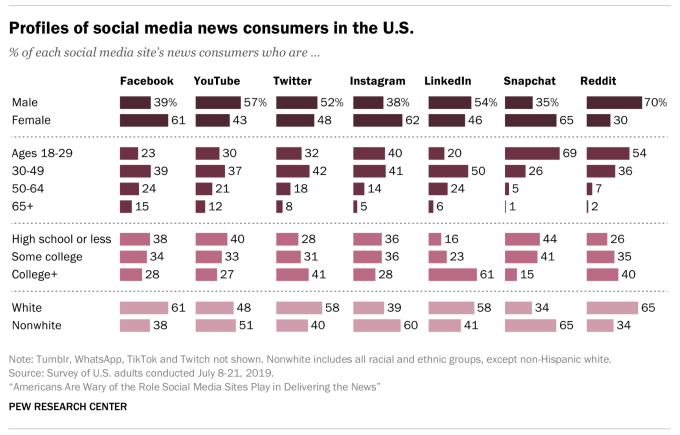
Finally, although the report is about bias in news and feelings about it, it is interesting to note which platforms appear here and with what focus. TikTok – which many think is the next big juggernaut in the social sphere – is less than 1% when it comes to being a platform for news. Snapchat, meanwhile, is also only 6% weak for delivering the news.
Given their heavy focus on younger users, this indicates the fact that young people don't really use any social channels to get the news, but they also don't care to read the news. Social platforms may currently be cast as untouchable in the news scene, but they should not be: These may also be opportunities to change conversation, as they bring in more people who are not being squeezed.
Pew polled 5110 respondents from the American Trends Research Committee from July 8 to July 21.
[ad_2]

